
Last week I went to a shopping mall and found that it was packed with people who were rushing to buy things as if they have never shopped before. Then I suddenly realized that they were getting ready for a another Christmas - the season for joy and giving. It is a great time to practice giving and "letting go." Then I thought to myself, it would be nice if we can can practice this giving more often. This made me to contemplate on the Buddhist idea of "letting go." Sometimes we wonder why we suffer in this world? The answer is simple. It is because we don't know how and when to "let go." This "letting go" is essentially the opposite of "attachment," which I have already discussed in one of my previous posts (see below).
In today's consumer driven society we tend to practice, "getting more" than "letting go." We think by getting more, for example material wealth, we will be happy. The happiness found through material gain comes with peaks and troughs. Buddhists believe that real and long lasting happiness comes from "letting go." Letting go is one of the fundamental teachings of Buddhist practice. What do we mean by "letting go?" How can we benefit from this? What is the deep meaning of "letting go" according to Buddhist teachings and practice? I will try to explore some of these questions in this post.
As we have already discussed the first step in The Noble Eightfold Path , "the right view" (see the post below). The second step in this path is "the right intention." There are three right intentions and one of them is "letting go." Once a Buddhist monk who inspired me to start this blog gave me some wonderful advice on giving and "letting go." He said that, "it is a hard for most people to even contemplate on giving to others. Only a very few people can really carry out the act of giving and letting go. Out these people only a very small proportion of people will really rejoice after giving and letting go." Giving material things such as gifts, medicines or food is the one of the first steps in "letting go." In Buddhism this is called Dāna, a Pali term for "generosity" or "giving." It also refers to the practice of cultivating generosity. This can be characterized by unattached and unconditional generosity, giving and "letting go." In other words you give without expecting anything in return. This is one of the three methods of gaining wholesome karma in the Buddhist tradition. The other two methods are Śīla or morality, and Bhavana or meditation.
Buddha gave a beautiful disclosure on the benefits of Dāna in Dakkhinavibhanga Sutta - The Exposition of Offerings (listen to MP3 Below). In this sutta he talks about the order of merit or wholesome kamma you would gain by giving to different individuals staring from a an ordinary lay person up to a Buddha. At the start of the this disclosure Buddha points out, leave alone the humans, even if you give Dāna to animals you will get hundred fold in return. Giving does not always mean material processions. You can also give in speech, for example give Dhamma (teaching of the Buddha) Dāna or by giving in mind and thought, for example loving kindness meditation. It is said in Buddhist texts that giving will increase your life span, beauty, happiness, strength, and wisdom. In the Culakammavibhanga Sutta Buddha said that the person who gives, accumulates merit and " having performed and completed such kamma, on the dissolution of the body, after death, he reappears in a happy destination, in the heavenly world. If instead he comes to the human state, he is rich wherever he is reborn."
The next level of "letting go" belong to Śīla or morality. In this one trains to "let go" the unwholesome acts done through the mind, body and speech. We have already discussed the ten unwholesome deeds in a previous post (see the post below). Having realized what is unwholesome the wise one "let go" of these acts and will start practicing the wholesome. This is for example, one who is lying will refrain from lying or one who is killing animals will refrain from killing animals. This will lead to further development of right faith, effort, mindfulness, concentration and wisdom leading to the next level of "letting go".
The final level of "letting go" is the Bhavana or meditation. This is the basis of training of mindfulness meditation (see the post below). Just think for a moment on how we usually spend our time. Most of the time we are thinking about the past or worrying and planning about the future. We have very little time or no time at all for this beautiful present moment. In this present moment awareness training you are free from attachments. Buddha said; "Do not go after the past, Nor lose yourself in the future. For the past no longer exists, And the future is not yet here. By looking deeply at things just as they are,In this moment , here and now,The seeker lives calmly and freely" Although this makes perfect sense in reality it is not so easy to practice. We usually try to hold on to the the past' especially unpleasant experiences we had, we may even get depressed thinking about these things. If you really cannot let go of the past at least think of a pleasant thing that happened. The human mind is such, it always looks for faults. This is what we call the "fault finding mind." It always tends to remember what went wrong rather than what went right. In the same way if we worry too much about the future this may even cause anxiety. We will start thinking..... what if this happens, and what if that happens and so on. The truth of the matter is none if these things may ever happen. This causes us an unnecessary anxiety. I have seen many patients like this in my practice. These people worry so much about a minor illness and the worrying and anxiety makes them suffer more than the illness itself. Mindfulness teaches us to "let go" of the past and the future and to be mindful in the present moment. This is the basis of mindfulness meditation. Buddha said "The mindfulness of in and out breathing, of body contemplation, of keeping consciousness of the moment, is a noble occupation and a sublime way, leading to independence of mind and to wisdom." He also said "In mindfulness I was conscious of the entire process. In this way I practiced contemplation on the body. When standing, I was aware that I was standing, when sitting, there was total knowledge of sitting; and when lying down, the full experience of lying down. By experiencing each moment, my mind clung no more to the world
In today's consumer driven society we tend to practice, "getting more" than "letting go." We think by getting more, for example material wealth, we will be happy. The happiness found through material gain comes with peaks and troughs. Buddhists believe that real and long lasting happiness comes from "letting go." Letting go is one of the fundamental teachings of Buddhist practice. What do we mean by "letting go?" How can we benefit from this? What is the deep meaning of "letting go" according to Buddhist teachings and practice? I will try to explore some of these questions in this post.
As we have already discussed the first step in The Noble Eightfold Path , "the right view" (see the post below). The second step in this path is "the right intention." There are three right intentions and one of them is "letting go." Once a Buddhist monk who inspired me to start this blog gave me some wonderful advice on giving and "letting go." He said that, "it is a hard for most people to even contemplate on giving to others. Only a very few people can really carry out the act of giving and letting go. Out these people only a very small proportion of people will really rejoice after giving and letting go." Giving material things such as gifts, medicines or food is the one of the first steps in "letting go." In Buddhism this is called Dāna, a Pali term for "generosity" or "giving." It also refers to the practice of cultivating generosity. This can be characterized by unattached and unconditional generosity, giving and "letting go." In other words you give without expecting anything in return. This is one of the three methods of gaining wholesome karma in the Buddhist tradition. The other two methods are Śīla or morality, and Bhavana or meditation.
Buddha gave a beautiful disclosure on the benefits of Dāna in Dakkhinavibhanga Sutta - The Exposition of Offerings (listen to MP3 Below). In this sutta he talks about the order of merit or wholesome kamma you would gain by giving to different individuals staring from a an ordinary lay person up to a Buddha. At the start of the this disclosure Buddha points out, leave alone the humans, even if you give Dāna to animals you will get hundred fold in return. Giving does not always mean material processions. You can also give in speech, for example give Dhamma (teaching of the Buddha) Dāna or by giving in mind and thought, for example loving kindness meditation. It is said in Buddhist texts that giving will increase your life span, beauty, happiness, strength, and wisdom. In the Culakammavibhanga Sutta Buddha said that the person who gives, accumulates merit and " having performed and completed such kamma, on the dissolution of the body, after death, he reappears in a happy destination, in the heavenly world. If instead he comes to the human state, he is rich wherever he is reborn."
The next level of "letting go" belong to Śīla or morality. In this one trains to "let go" the unwholesome acts done through the mind, body and speech. We have already discussed the ten unwholesome deeds in a previous post (see the post below). Having realized what is unwholesome the wise one "let go" of these acts and will start practicing the wholesome. This is for example, one who is lying will refrain from lying or one who is killing animals will refrain from killing animals. This will lead to further development of right faith, effort, mindfulness, concentration and wisdom leading to the next level of "letting go".
The final level of "letting go" is the Bhavana or meditation. This is the basis of training of mindfulness meditation (see the post below). Just think for a moment on how we usually spend our time. Most of the time we are thinking about the past or worrying and planning about the future. We have very little time or no time at all for this beautiful present moment. In this present moment awareness training you are free from attachments. Buddha said; "Do not go after the past, Nor lose yourself in the future. For the past no longer exists, And the future is not yet here. By looking deeply at things just as they are,In this moment , here and now,The seeker lives calmly and freely" Although this makes perfect sense in reality it is not so easy to practice. We usually try to hold on to the the past' especially unpleasant experiences we had, we may even get depressed thinking about these things. If you really cannot let go of the past at least think of a pleasant thing that happened. The human mind is such, it always looks for faults. This is what we call the "fault finding mind." It always tends to remember what went wrong rather than what went right. In the same way if we worry too much about the future this may even cause anxiety. We will start thinking..... what if this happens, and what if that happens and so on. The truth of the matter is none if these things may ever happen. This causes us an unnecessary anxiety. I have seen many patients like this in my practice. These people worry so much about a minor illness and the worrying and anxiety makes them suffer more than the illness itself. Mindfulness teaches us to "let go" of the past and the future and to be mindful in the present moment. This is the basis of mindfulness meditation. Buddha said "The mindfulness of in and out breathing, of body contemplation, of keeping consciousness of the moment, is a noble occupation and a sublime way, leading to independence of mind and to wisdom." He also said "In mindfulness I was conscious of the entire process. In this way I practiced contemplation on the body. When standing, I was aware that I was standing, when sitting, there was total knowledge of sitting; and when lying down, the full experience of lying down. By experiencing each moment, my mind clung no more to the world
The Vipassana meditation takes us to the ultimate level of "letting go." As I have discussed before, first we have to contemplate on how our six senses (eye, ear, nose, tongue,body and mind) work together with the external sense objects (object, sound, smell, taste, touch, mental object) and how and where this craving arise (see the post below). Then you can contemplate on impermanence, suffering, and non-self of these six senses and their external sense objects. If this process is practiced diligently with mindfulness, it will help to get rid of the cravings that arise in them as we realize it is fruitless to suffer because of an impermanent nature that is anyway not in our control (see the post on non-self below). You can merely look at them as they are, with equanimity and let them go. This is the practice of Vipassana meditation. This is the path to final freedom from suffering and to the ultimate happiness of Nirvana.
Related Suttas, Discussions and posts:
"Why are these two boots tied together"? (post on attachment)
" The True Weapons of Mass Destruction" - Greed, Hatred and Delusion ( post on the right view/ten unwholesome deeds)
Dakkhinavibhanga Sutta - The Exposition of Offerings-Majjhima Nikaya 142 explained by Ajahn Brahm (MP3)
Related Suttas, Discussions and posts:
"Why are these two boots tied together"? (post on attachment)
" The True Weapons of Mass Destruction" - Greed, Hatred and Delusion ( post on the right view/ten unwholesome deeds)
Dakkhinavibhanga Sutta - The Exposition of Offerings-Majjhima Nikaya 142 explained by Ajahn Brahm (MP3)
Dana Sutta -Giving (sutta on Dana)
Generosity -dana, caga (collection of infomation from the suttas on Dana)
Dana ,The Practice of Giving -(Selected essays edited by Bhikkhu Bodhi)
"Stop worrying about your body so much...you are just renting it anyway" (Post on non-self)
Generosity -dana, caga (collection of infomation from the suttas on Dana)
Dana ,The Practice of Giving -(Selected essays edited by Bhikkhu Bodhi)
"Stop worrying about your body so much...you are just renting it anyway" (Post on non-self)
Na Tumhaka Sutta-Not Yours
The Practice of Mindfulness -"The four bases of mindfulness" (Post on mindfulness meditation)
The Ultimate Psychotherapy -Through Buddhism (post on the six senses)
The Practice of Mindfulness -"The four bases of mindfulness" (Post on mindfulness meditation)
The Ultimate Psychotherapy -Through Buddhism (post on the six senses)


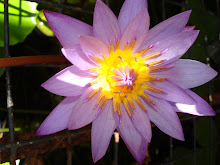












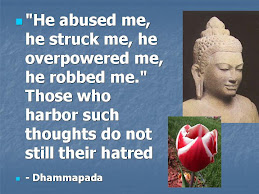

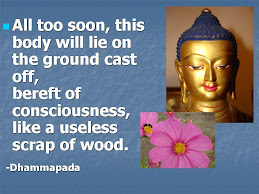
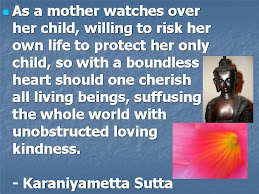
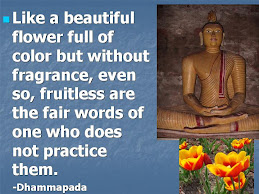
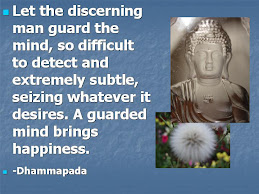

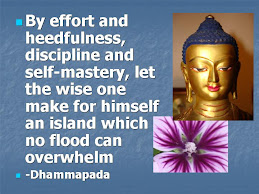

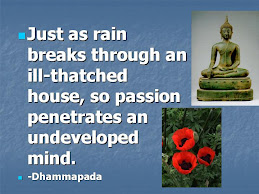

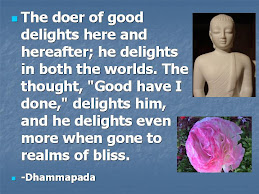
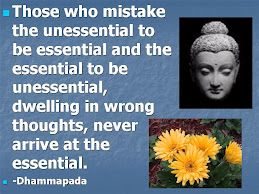
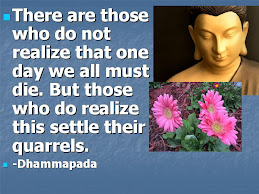
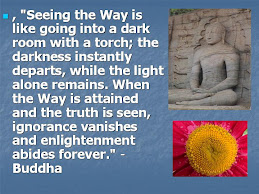

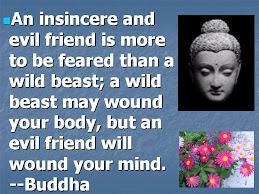
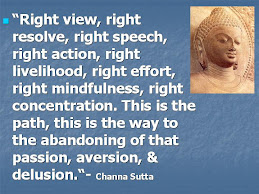

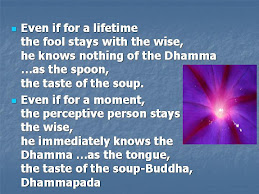


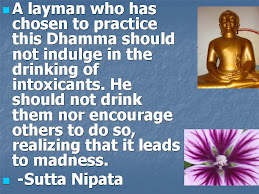
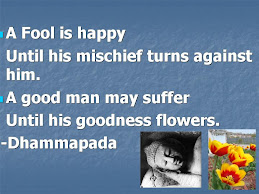
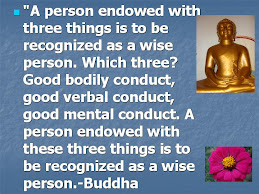

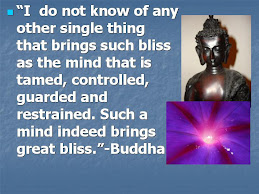
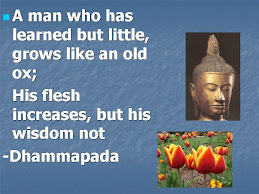
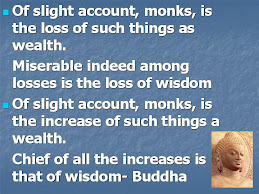

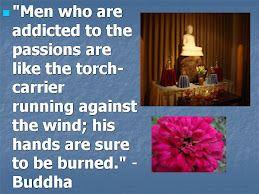


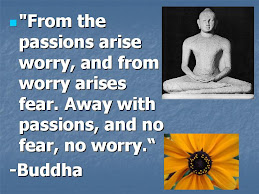
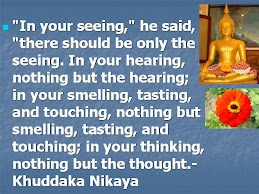




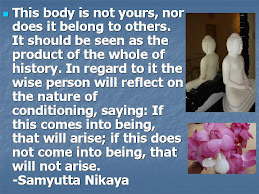
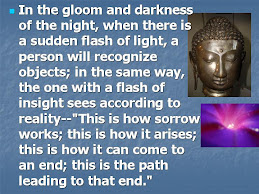
















No comments:
Post a Comment